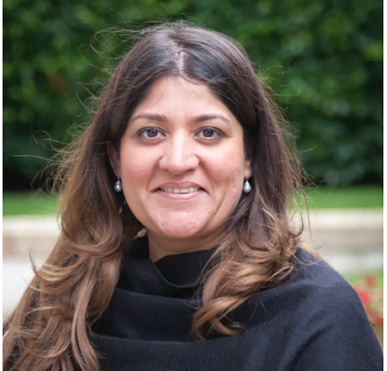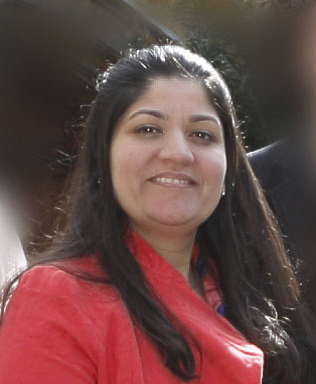Learning is a process of active engagement with experience. It is what people do when they want to make sense of the world. It may involve the development or deepening of skills, knowledge, understanding, awareness, values, ideas and feelings or an increase in the capacity to reflect. Effective learning leads to change, development and the desire to learn more – (Definition used by The Campaign for Learning, 2003; reported in Braund & Reiss 2004). The main objective of this workshop is to look beyond formal classroom instruction in order to identify means and opportunities for Learning Outside the Classroom (LOtC) as a contributing influence on lifelong learning and the development of a “knowledge society” across the GCC countries. The workshop will be informed by contributions from institutions across all educational levels and all collaborators such as industrial entities, commercial entities, government entities, NPOs, community centres, and youth organisations that could potentially play a role in enhancing the efforts of creating a knowledge society. Challenges and opportunities will be addressed and analysed and recommendations drawn for a holistic, multi-faceted approach to complement the GCC 2 countries’ considerable existing efforts and financial commitments to education and training.
3 DAYS / 12 Workshops
MORE THAN 300 ACADEMIC PAPERS
With large percentages of national budgets dedicated to education and training, and a committed acknowledgement of education as an economic driving force in the GCC, the recent rhetoric has shifted increasingly and energetically towards the desirable outcome of developing “a knowledge society” that could meet the challenges of the 21st century, globalisation, and technological change (United Nations Development Programme (UNDP), 2003). However, global standardised testing (such as TIMMS and PISA) shows that in those GCC countries that have participated, students have scored well below the average, causing much concern among policymakers and generating extensive analyses of the challenges in improving quality, beyond quantity and access to education (SalehiIsfahani et al. 2011). In order to tackle the obvious gap between reality and desired aims, policy recommendations have been numerous (see AlMunajjed et al. 2011; Barber et al. 2007; Farah 2012; Gonzalez et al. 2008). These are typically consistent in their acknowledgment of the GCC countries’ financial commitments to education, mostly in the “hard infrastructure” of schools, yet varying in their degree of emphasis on the need for further investment in the “soft infrastructure” and areas of focus. These have primarily directed their focus on approaches meant for the education and labour market to address, independently and through collaboration. For example, some have identified the need for improving the calibre and quality of teachers (Hanushek 2005), and their training and professional development, as well as the evaluation of student performance and assessment of school effectiveness (Barber et al. 2007), the need for improved and updated teaching curricula and methods, increased use of ICT in the classrooms, increased career counseling, improved compatibility between the output of the educational system and the needs of the employment market, the need for vocational education, more engagement and input from the key stakeholders in the education process, the students (Jamjoom 2013; AlMunajjed et al. 2011), with some mention of “extra-curricular educational opportunities such as science clubs and museums” (also AlMunajjed et al. 2011). Looking beyond the GCC, on the other hand, some of the most competitive countries of the 21st century, such as Finland, are in fact pursuing very different policies to those recommended earlier, emphasizing flexibility and loose standards over standardisation, broad learning combined with creativity (giving ‘equal value to all aspects of an individual’s growth of personality, moral, creativity, knowledge and skills’) over a focus on numeracy and literacy, and intelligent accountability with trust-based professionalism (empowering teachers and heads of school) over consequential accountability of school performance and student assessment (Sahlberg 2007). Standardised testing, the rigid assessments imposed on schools with strictly dictated outcomes and the ensuing impact on limiting the student’s reasoning and intellectual capacity is also criticised by others in developed countries such as the US where student performance and the public education 3 system is also in need of improvement (Wagner 2009; Gato et al. 2010). Yet countries where the system can rely on ‘flexibility and loose standards’ already have other fundamentals in place, such as a highly qualified teaching force selectively and competitively vying for very respected careers in education. Learning from 'best practices' and aiming for improved teaching, the GCC countries are increasingly establishing initiatives to address the critical issue of teacher training and recruitment. Simultaneously, many of the related challenges to the provision of a quality education system are being tackled in the GCC countries through reforms to education systems and the labour market. Yet, the infrastructure for developing an ecosystem that values and encourages “learning” (as opposed to “formal instruction”) outside the typical school/classroom model is both weak and little studied in the context of the GCC countries where formal education is heavily relied upon to provide all aspects of ‘education’ (and heavily criticised when it fails to do so). A look at anecdotal and electronic reporting emphasises that public libraries and museums are lamentably few (Jawhar 2013); a culture of school trips (to industry sites, farms and the natural environment, for example) is both discouraged for fear of waste of school/study time and pursued only by private schools with means; summer camps for those remaining in their respective countries are accessible only to those in urban areas; expeditions outside the country are offered either as sponsored packages to gifted students (e.g., the Mawhiba initiatives for gifted students sponsored by the Ministry of Education in KSA) or limited to students of elite private schools with means, and often limited to male students; commercial ‘edutainment’ centres (such as Kidzania in Dubai) are also few and limited to those in urban hubs. At the tertiary level of education, public universities do not encourage a dialogue with other stakeholders such as industry experts and organisations, and out-of-classroom experiences are limited for private institutions competing for an edge in offerings and the quality of their services (Ibrahim & Sarirete 2011). At the professional level, job training budgets are limited, and often the first to be slashed in crises – with limited opportunities and affordable providers available for professional development in the first place (with some notable exceptions in each GCC country). Converging on ‘broad learning’ as an outcome of Learning Outside the Classroom (LOtC), this workshop identifies LOtC as a critical contributing factor to the personal, emotional, social, cognitive and educational development of young people (throughout the K-12 years) (Malone; Council for Learning Outside the Classroom; English Outdoor Council), and to development of Personal Competence, Cognitive Complexity, Knowledge and Academic Skills, Practical Competence, and Altruism and Estheticism of adults enrolled in higher education (Kuh 1993). Research (mostly conducted outside of the GCC) abounds with studies that emphasise the importance of LOtC. As far as elementary science is concerned, home-based learning and direct observation were found to be ‘more important sources of knowledge than were schools or books’ (Braund & Reiss 2004). Research on the importance of arts and culture shows that those who ‘engage in the arts or watch others do so are more likely to be 4 civically engaged, socially tolerant, and altruistic,’ deeming an arts education as ‘essential to preparing .. young people for a global economy fueled by innovation and creativity’ (LeRoux & Bernadska 2012). The International Baccalaureate (IB) in its aims to develop students physically, intellectually, emotionally, and ethically, considers Learning Outside the Classroom (through “experiential learning and …journeys of selfdiscovery”) a core tool for its Diploma requirements (IB Diploma website). Also, the UK-based Council for Learning Outside the Classroom maintains that “Learning outside the classroom activities… give children and young people the opportunity to work on real-life challenges; handle risk; develop their capacity to think imaginatively and creatively; define and explore complex problems; use and adapt multiple resources both within their community and beyond in order to experiment and devise solutions to these problems” (LOtC website). This workshop will highlight the critical importance of partnerships in the GCC countries between educational institutions, centres of culture, art, community and science, and commercial enterprises focused on education for enhancing the learning ecosystem for young adults, and similarly, partnerships between tertiary level institutions, industry, research centres of excellence, policymaking bodies and training organisations in order to enhance the learning ecosystem for adults. It will address the social, cultural, and community-based opportunities (whether public, private or, indeed commercial as distinct from private), outside of or complementing the domain of formal education, that enhance ‘learning’ and contribute to the overall objectives of creating a knowledge-based economy at all levels of the education life-cycle. It will explore recommendations for Public-Private Partnerships that could enhance the learning ecosystem of GCC countries for their citizens. The workshop will also contribute to the literature on LOtC in the GCC, allowing for a repository of case studies such as desired practices for institutions and organisations, and encouraging NPOs, civil society groups and professional organisations to play a part in developing more targeted community-based programs for the youth. The workshop will analyze existing initiatives and efforts, address gaps, and examine opportunities and challenges facing LOtC in the following educational and professional stages:
• K-12 • Higher Education • Not-for-profit, Civic and Community-led domain • Vocational Education • Professional and Executive Education and Training

